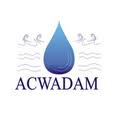/topics/groundwater
Groundwater
Adaptive sustainable agriculture: Crop system intensification in Andhra Pradesh
Posted on 30 Apr, 2012 07:01 PMWOTR has been extensively promoting sustainable agriculture practices as part of its adaptive sustainable development approach. The objective is to promote low external inputs, increase land productivity, use of indigenous seeds, and reduce cost of cultivation.
Precious Kaveri water down the drain; wasted to wash vehicles: Letter to the Chairman, Bangalore Water Supply and Sewerage Board
Posted on 23 Apr, 2012 12:47 PMDear Chairman BWSSB,
Critical review of the impacts, challenges, prospects and conflict management for vitally needed inter-linking of rivers in India
Posted on 23 Apr, 2012 12:17 PMGuest post by : Er. Radhey Shyam Goel
1. Introduction
Depleting water resources in Thalassery, Kerala: Huge effort is required to address water supply and sewerage handling issues
Posted on 22 Apr, 2012 02:57 PMAuthor : Fazal Maliyakkal
A framework for rural drinking water quality management, based on experiences from the voluntary sector - A learning document by Arghyam
Posted on 20 Apr, 2012 04:33 PMThe phases that have been identified for a sustainable WQM programme are:
(1) Assessment of baseline situation
(2) Participatory planning
(3) Water quality monitoring
(4) Implementation
The sanitation crisis in India - An urgent need to look beyond toilet provision
Posted on 18 Apr, 2012 12:14 PMGuest post by: Aarti Kelkar-Khambete
Image Courtesy: Wikimedia Commons
The sanitation crisis and the recent evidence on lack of toilet facilities
Water supply and demand management of the Indus basin : Options for current and future sustainable water resources management
Posted on 17 Apr, 2012 12:04 PMArticle Courtesy : Hydrology and Earth System Sciences (HESS)
Authors : A.N. Laghari, D.Vanham, and W.Rauch
Advanced Center for Water Resources Development and Management (ACWADAM) is looking for a scientist and researchers, based at Pune
Posted on 15 Apr, 2012 03:39 PMAdvanced Center for Water Resources Development and Management (ACWADAM) is a civil society organisation working on groundwater management in different parts of India. ACWADAM’s focus is in the area of developing and improving understanding of groundwater resources. It also deals with the demystification of groundwater science and strengthening hydrogeological capacities of institutions working in the water sector in India.
Toolkit for integrated urban water management, developed by Institute for Resource Analysis and Policy
Posted on 12 Apr, 2012 11:24 PMThe review included, but was not limited to urban hydrology, management of water supply infrastructure, water resources management, water quality management (WQM), groundwater management, technical and economic instruments for water demand management, technical and economic aspects of leakage reduction, environmental and economic aspects of wastewater treatment and reuse, storm water management






